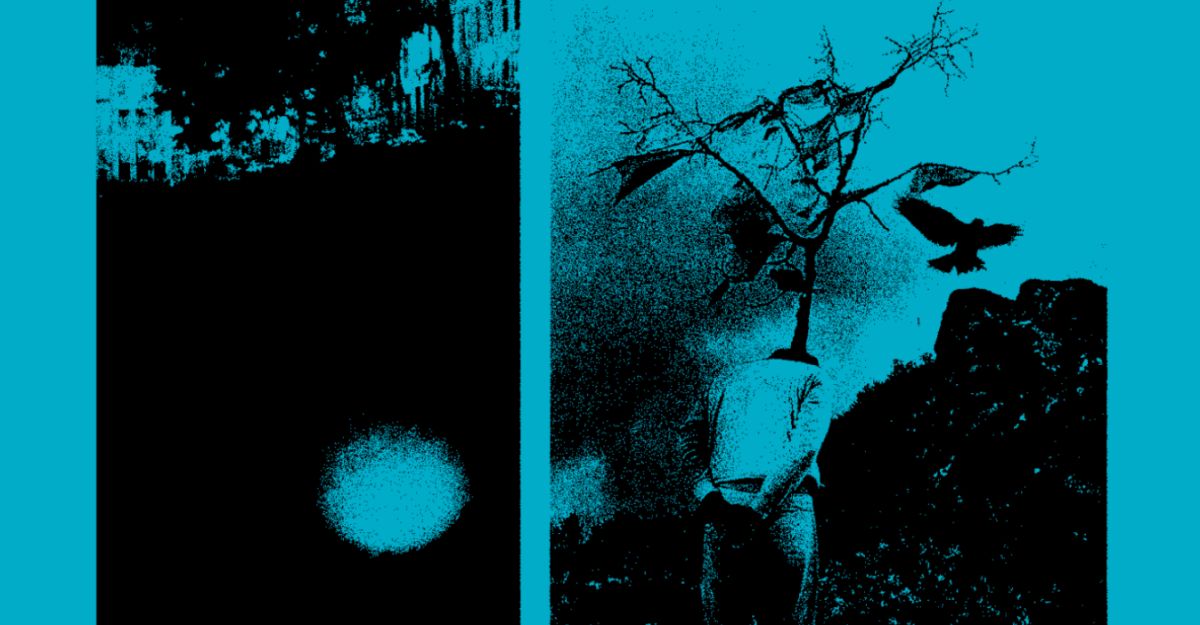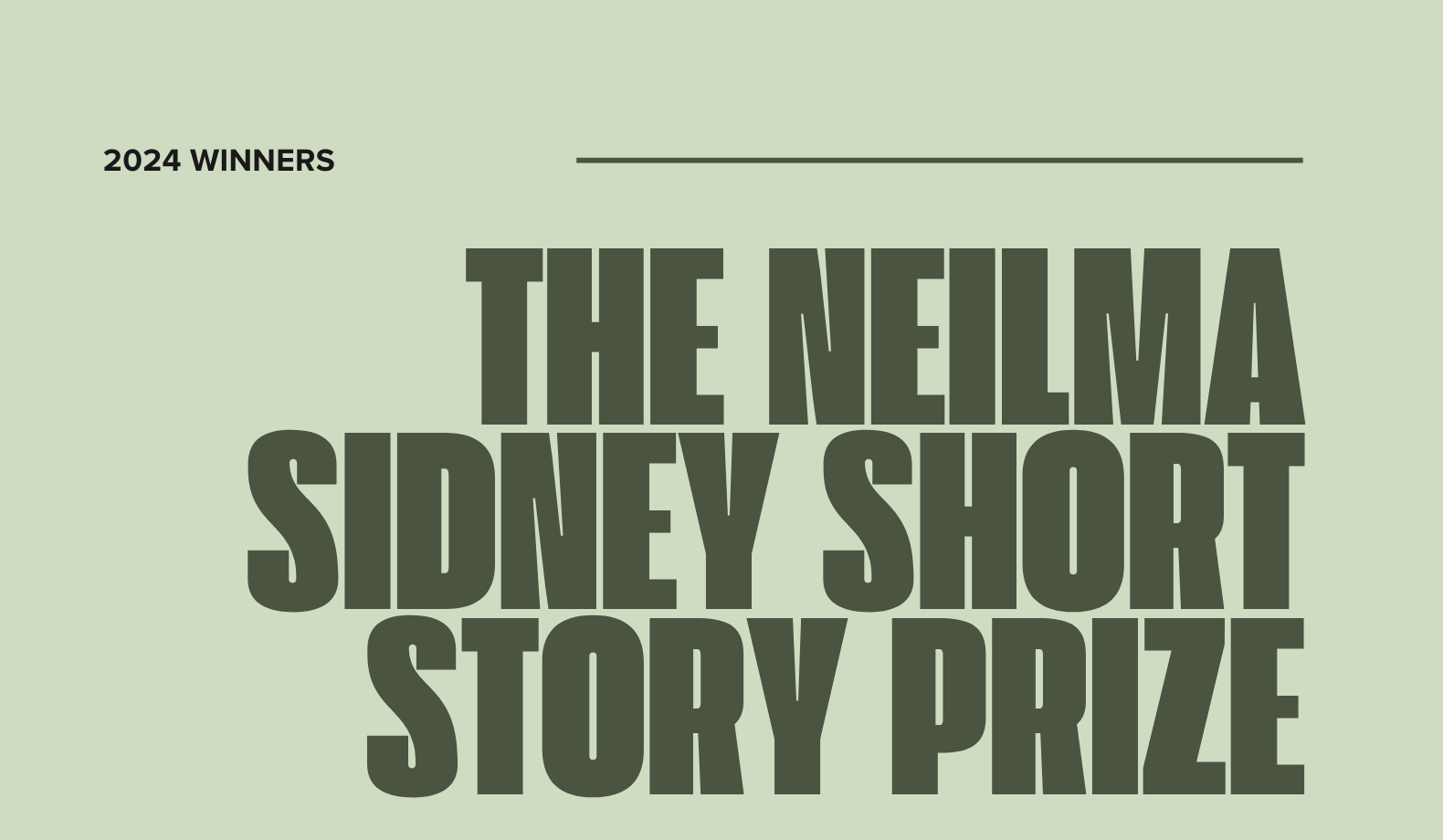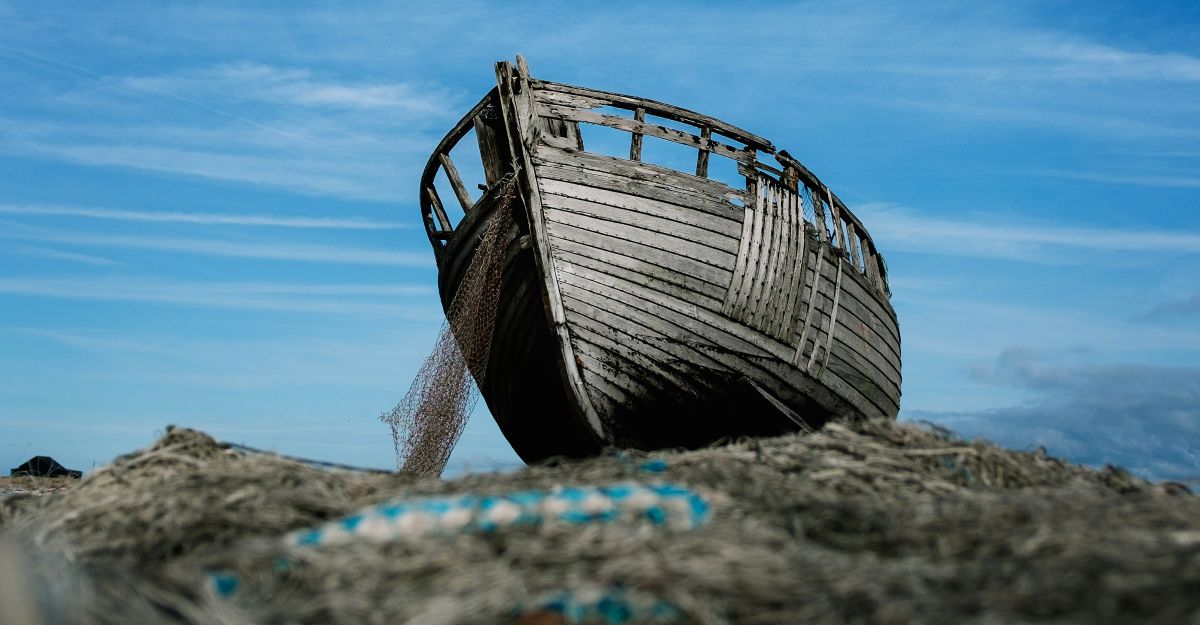In the quarter-hour before midnight, smoke is all that separates us. It carpets the ceiling, stitches together to form a woolly bridge where we meet as equals. Mouth to mouth, coin to pocket.
Sheltered between gutters on Rue Pigalle, the nightclub is a grotto of angled lights and bare shoulders. Lips charge wet kisses beneath loose collars. Candlelit tables orbit a circular stage.
We’re subterranean. We’re “all good fun”. We play at love but even the fools among us know that it cannot be found here — not that anyone is looking.
I stride along the upper mezzanine past booths with their curtains drawn, leaving behind a hastily written record of my description in the Professor’s little black book. He visited yesterday, too. Spoke at length about cephalopods and the way cuttlefish can change the colour of their skin with only their minds.
“Like blind painters, for they cannot see themselves,” and his voice shakes when he says it.
He’s a tidy man, even if he does smell faintly of fish tanks. He is neither the best nor the worst of them. He doesn’t know that I, too, can hear the sea in these walls. I take it with me everywhere I go. But I would never tell him that.
“That man is back for Amie.” Helena has made the mistake of taking her shoes off between sets and sits rubbing her feet.
“You’ll never get those back on,” I tell her. She waves me away.
“He’s handsome,” Lora adds, winks.
“Every man who sees Amie once is back for Amie again,” I say.
“Not this one, he’s different.”
Several of us laugh. The oldest among us laugh the longest.
“I meant he’s come by the back door,”
Lora insists.
“Not worth it,” Mildred says and there’s
more laughter.
Lora is so young. She pushes back in her
seat in rebuke.
“He’s not a patron,” Helena ribbons her shoes over swollen ankles. “Says it’s a matter of urgency, life and death, that sort of thing.”
“Let him jump,” Mildred says, getting to
her feet and adjusting her bodice, “and tell Amie to take it as a compliment.”
There’s movement as everyone makes their way to the stairs. Helena holds my gaze a little longer, so I give her a nod. I’ll tell Amie — but not yet. She’s still on stage, holding a foam star above her head. It glistens with glue and gold. She aspires to be the one up front, the one who dances with the moon underneath the candelabra. She has no idea how it lights her up, even now.
The man waits all night in the alleyway behind
the club. He holds his hat to his chest, pinches it by the brim, so that his head is bare and glossy to the open sky. The gradual rain doesn’t seem to dampen him. It glitters across his tailored shoulders.
Amie doesn’t react when I tell her the man is back. When she asks for more information, I shrug, and when she asks me to check if he’s still there, I oblige. I’m as resistant to Amie as any man is, it would seem.
“Young-ish,” I say. “Well-dressed. Looks
like this.”
I push forward a scrappy sketch and Amie takes it with careful fingers and a tender eye. Then she surprises me.
“Tell him to wait, please.”
I stand out of the weather with my coat and purse, my hair covered. The man steals glances at me but looks away before our eyes can meet. His patience is singular and after a few minutes I detect that he’s sober, too. It makes him more disarming than he knows, drunk men being like wet clay.
“How did you say you know Amie?” I ask.
He starts at being addressed. “I didn’t,” he says, and his last syllable is punctured by the clunk of the stage door opening behind me. Amie steps into the annexe, the muted rumble of the club seeping out behind her.
She has left her chest bare to the soft rain, her coat wrapped only halfway around her shoulders. Her provocation has me interested, so I loiter. She doesn’t tell me to leave.
The man nearly drops his hat, which is no surprise to me. Amie has a way about her. Her cheeks and neck flush the same pink as where her thighs touch when she’s dancing and the men go soft in the head for it.
She steps toward him at a queen’s pace and she seems to glow brighter still, in the persisting shadow of the alley. Dawn isn’t far off but the rain clouds are determined to hold the night.
It’s plain that Amie isn’t surprised to see this man. He bears it all, despite having sought her out. He regains his composure with a stammer.
“It’s Mother.”
Amie draws still and her smirk recedes like low tide. When she sparks to life, she turns and comes to me, loops our arms together.
“You’re mistaken, sir. I don’t have a mother,” she says, and she steers us back inside. The glittering man watches us go.
Today is cooler than yesterday. We keep the solitary window open only far enough to let the smoke out. Our flat is less colourful than the club, but even with its single window it lets in more sunlight. Mostly bare, our brass bed wears a sage-green coverlet embroidered with a pale-yellow sun. Amie did that — and she thinks I’m the creative one.
A linen drape separates our bed from the kitchenette. Seashells from Donville-les-Bains line the windowsill. We walk barefoot on varnished cork textured with yesterday’s coffee grinds and threads of white cat hair. No trace of red here.
I sit on the counter, cigarette stuck to my upper lip and my sketchbook in both hands. In myth, squid can grow as large as houses, with limbs strong enough to capsize ships. I’ve seen such drawings in galleries and on globes. The Professor said something about gigantism and how the very deepest parts of the ocean allow creatures to grow freely. Without limits, they fill the infinite dark.
I sketch my own version in my sketchbook. The eye of the giant squid is pale and stares off the page. There is passion in the way it embraces the sinking ship. Tentacles snap the mast. Water fills the portholes.
I hear a knock at the door. The worst part is, I never learn how he found us. I blame one of the girls at the club, who objects fiercely, but that is no relief to me. I envisage a dotted line snaking along the cobblestones between Montmartre and our flat — and our sanctuary takes on a chill.
When the knocking continues, I slide
off the counter and press my eye to the peephole. With my best attempt to resume my old Gascony accent, I speak through the wood, “You’ve the wrong address.”
“It’s essential that I see her — Marie Bastien.”
I can’t help it. I open the door, keeping the chain fastened. Without showing my face, I ask, “How do you know that name?”
“She’s my sister,” he says. “I’m Monsieur Bastien — the younger. Eugene.”
“There is no Bastien here.”
“My sister always took great pride in her name and in her family.”
“I cannot help you.”
I try to close the door, and a shiny, sharp-footed shoe wedges between the wood. He peeks through the gap and his face registers at once. “You’re the one — the one from the show,” he says. “Please, I have to see her.”
“I don’t know what you’re talking about.”
“Money is no object,” he says and this riles me.
“If she wanted to see you, she would have said so,” I say. “Or didn’t she make that clear last week?”
“She was confused — ”
“Amie isn’t confused.”
“That wasn’t really her,” he replies, frustrated. “She’s … she’s lost.”
My temper isn’t tested often, not truly. I close the door on the man’s foot, send it out, and unhook the chain. When I open the door again, I step forward, allowing myself to fill the frame.
“Except she’s not lost,” I say, and now my regional accent is coming through whether I like it or not. “She’s not hiding.”
“This feels like hiding.”
“She’s happy.”
“Happy?”
He speaks, not in fury, but with the despair of a man lost in an unending fog, asked for directions from above. It doesn’t liken me to him, but my understanding deepens.
“Eugene?”
Amie is in the hall, her coat secured fast around her this time. She’s illuminated only in part by the arch window in the stairwell, strips of gold and black. Dawn skims the sloping rooftops of Paris and touches her gently. The man softens at once.
“Marie,” he says, and sweeps off his hat. “I see this is where you have been living. I have met your flatmate.”
She doesn’t correct him. I can see she is thinking of a way out, or trying to, but exhaustion prevails. She pulls off her gloves, the end of a long night besting her.
“Come in, then,” she says. Her narrow heels clop hard on the timbers. “Now that you’ve successfully hunted me down like one of your guinea fowl.”
“Can’t a brother visit his sister?”
She throws him a cold look as she shuts the door behind us, kicking off her embroidered shoes. Without them she is smaller than us both. I return to the counter and my sketchbook. On a new page, I use a stick of graphite to mirror the arches of the man’s nose. His nostrils flare under Amie’s penetrating gaze.
“Mother is sick,” he says. “She’s dying.”
Amie doesn’t say anything. A curt lift of her eyebrow makes Eugene recoil.
“She loves you, Marie,” he says.
Amie’s expression only hardens. “Don’t,” she says, dropping her coat on a wall hook. She steps behind the curtain and begins to change. Eugene takes in the flat. When he sees that I’m drawing him, he recoils further. He clears his throat.
“She wishes to see you,” he amends. “She wants to meet the boy.”
My sketching stops and silence fills its place.
Eugene lowers his voice, desperate. “Where is he, Marie? Is he here?”
I’m listening so intently that I detect a far-off ringing which I can’t be sure is real. My pencil hovers above the page. Amie emerges, dressed in a white linen shift. She readies herself for bed, as though Eugene were not here, drawing a comb through her knotted curls till her hair forms a pillow around her face. Her make-up is smudged, the coal dust of her mascara leaving traces on her eyelids.
“He’s with his father,” she says.
“Mother would like to know her grandson. We all would.”
“She had her chance to know him,” Amie says. Calm, measured. “I see no reason to question her judgement now.”
When Amie glances at me, fleeting, I divert my gaze. I take up my pencil again, mark out the outline of Eugene’s heavy coat, how similar it makes him look to all the men in Paris. An ocean of black tails and tall hats, and within it, the colourful web of wealth between them. Even in my distraction, the news repeats itself, an echo in my ears.
“Marie,” he starts.
“Don’t call me that.”
“And what should I call you by? Some demimonde title? A stage name?” He throws me
a look.
“You should go,” Amie says. She moves toward the door and Eugene falters.
“She regrets it, you know,” he says. “She regrets sending you away. Please, Marie — think of the child.”
Amie opens the door and our hallway is no longer empty. The rise of Eugene’s voice has summoned old Ms Eveno, spying through a crack in her apartment door. The Gallou brothers stand smoking nearby in their labourers coveralls. Plaster dust powders the crooks of their elbows, the folds of their cuffs.
“She didn’t send me away,” Amie says, tight-lipped. “I left.”
The following night, when she asks, I tell Amie I saw her brother weep when he swept from the room. He wasted no time with a goodbye, dashing fearfully from our building with his coat billowing behind him.
She keeps the drawing. The fleeting one I had done of her brother. She laughs at it, at first. “Look at that Roman nose.” But when I leave my sketchbook out, as I am wont to do with my few possessions, she doesn’t chastise me. I return to find the image gently cut from the spine. Where she keeps it, I do not know.
When I’m alone again, I finish the drawing of the giant squid and the sinking ship. The ocean storm is a swirl of graphite filled with my fingerprints and instead of sailors’ uniforms, the drowning men wear tall hats and black coats. They scream as the squid swallows them whole.
“Octopus live only for a year or two,” he’d said, “and they do not grow old, as we do. They grow into adulthood, into their beauty, and then they decay. They come apart and die on the tide.”
I don’t frown at him while I’m working. I say, “Oh, how sad.”
He touches my face, the ends of my long, dark hair, and there’s the smell of him again. Reedy, salty. “They are magnificent, while they are here on earth — and then they are gone.”
We take the train west, running along the platform so that we don’t miss it, four daisies in scalloped skirts, clutching straw hats and suitcases. I help strap Helena’s ankle before we leave, and a good thing too.
The men — the coats and tall hats — don’t recognise us when we run for our seaside train. They smile, along with their wives and children. Clouds of steam begin to curtain the engine, bleed into the sky from the open-topped station. We make the other passengers laugh when we crowd into the third-class carriage.
When we arrive, I fly to the water. The girls wait with bated breath as I climb the stone pier, dive from the highest mark into the cobalt sea. I open my eyes into water too deep to see what lurks below. If there are cephalopods, my kicking frightens them away.
I dance for him because it is my job. I taste the soft lobe of his ear and I smile. And when I leave the booth, I do not vanish into the fold. I do not float in a jar of formaldehyde, limbs folded up around my face. I am here, on the sand and pebble beach with the shapes of Helena and Elenora in my sketchbook, and Amie at my side. I look at the water, and I think of his brilliant, decaying, tricolour serpents. But only briefly, because all too soon I’ve forgotten him. The idea of the skin-changing creatures will remain with me for much longer.
Amie’s legs are longer than the towel we’ve brought and she points her sandy toes toward the water. Her hat is carefully pinned so that it doesn’t come loose, even as her hair unfurls on the wind. Elenora and Helena lift their skirts just high enough so that the sea wraps around their knees, prodding and pulling. We can’t hear what they say but their laughter carries.
“What happened to the child, Amie?”
I promised myself I wouldn’t ask. The opportunity is solitary and fleeting. I regret asking almost at once.
Amie isn’t offended, not openly. She looks at me with a sideways smile, cheeks flushed. “That’s what I like about you, my love,” she says, and she gestures to the sketchbook on my knees. “You with your possibilities.”
When I look down, she kisses me softly on the temple. The salt in my hair has made it dry fast, and it comes abound my shoulders in crimps and waves.
For the first time in a year, I feel nearer myself. As though we each possess a core that collects the dribs and drabs of the city as we pass through it, an imprint of everything we touch and everyone who touches us. The saltwater has rid me of mine. I feel myself, completely.
“Come for a swim?” I say and I put the sketchbook aside.
But Amie looks away, toward the horizon
and all that stands between us and the edge of the earth. She’s ignoring me. I don’t mind. I venture near the water and when I look to her, only the pages of Amie’s magazine wave back.
By the time I touch the water, Amie is so far that I can’t quite see her. It is someone else sitting there, beneath our yellow umbrella. She’s trying something new. Her face, a rotating mask. She’s trying out the kinks, ironing it flat so she can wear it easily, like silken armour. It will protect her, even from me. I taught her that.
I dive and for a second I hear the girls laugh when I splash them. I’m underwater, now, and all I can hear is the heavy heartbeat of the tide, the song of the sea in my ears.



